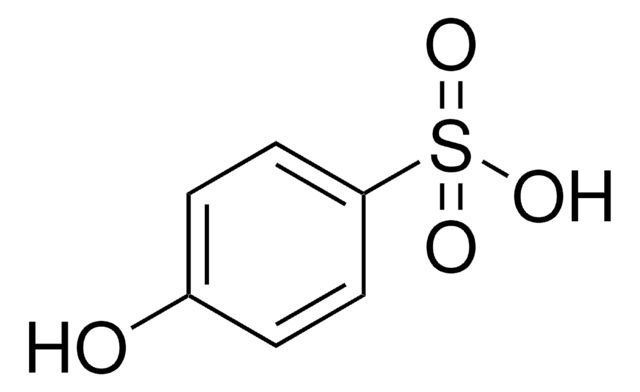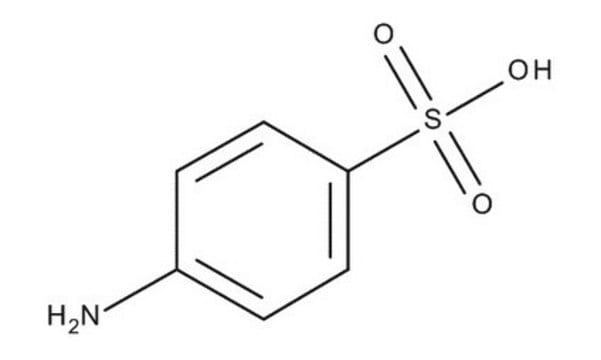Wichtige Dokumente
165794
3-Aminobenzolsulfonsäure
97%
Synonym(e):
Metanilsäure
About This Item
Empfohlene Produkte
Qualitätsniveau
Assay
97%
Form
powder
mp (Schmelzpunkt)
>300 °C (lit.)
Löslichkeit
ethanol: very slightly soluble(lit.)
methanol: very slightly soluble(lit.)
Funktionelle Gruppe
sulfonic acid
SMILES String
Nc1cccc(c1)S(O)(=O)=O
InChI
1S/C6H7NO3S/c7-5-2-1-3-6(4-5)11(8,9)10/h1-4H,7H2,(H,8,9,10)
InChIKey
ZAJAQTYSTDTMCU-UHFFFAOYSA-N
Suchen Sie nach ähnlichen Produkten? Aufrufen Leitfaden zum Produktvergleich
Allgemeine Beschreibung
Anwendung
Signalwort
Warning
H-Sätze
Gefahreneinstufungen
Acute Tox. 4 Dermal - Acute Tox. 4 Inhalation - Acute Tox. 4 Oral
Lagerklassenschlüssel
13 - Non Combustible Solids
WGK
WGK 1
Flammpunkt (°F)
Not applicable
Flammpunkt (°C)
Not applicable
Persönliche Schutzausrüstung
dust mask type N95 (US), Eyeshields, Gloves
Hier finden Sie alle aktuellen Versionen:
Besitzen Sie dieses Produkt bereits?
In der Dokumentenbibliothek finden Sie die Dokumentation zu den Produkten, die Sie kürzlich erworben haben.
Kunden haben sich ebenfalls angesehen
Unser Team von Wissenschaftlern verfügt über Erfahrung in allen Forschungsbereichen einschließlich Life Science, Materialwissenschaften, chemischer Synthese, Chromatographie, Analytik und vielen mehr..
Setzen Sie sich mit dem technischen Dienst in Verbindung.









